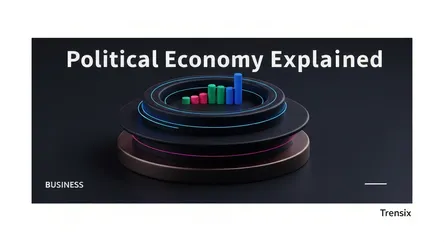Business
Political Economy Explained

Discover Political Economy, the study of how political decisions and government policies shape economic outcomes, trade, and wealth distribution.
What is it?
Political economy is an interdisciplinary field studying the relationship between politics and the economy. It examines how political institutions, government policies, and power dynamics influence economic outcomes like production, trade, and wealth distribution. Originating from thinkers like Adam Smith and Karl Marx, it explores how economic theories are applied within a political context, analyzing everything from national economic systems (capitalism, socialism) to specific government interventions. It's the study of who gets what, when, and how, through the combined lens of power and money.
Why is it trending?
The concept is increasingly relevant as global issues highlight the link between government action and economic health. Debates around trade disputes, government responses to the COVID-19 pandemic, climate change policies, and rising income inequality all fall under political economy. People are more aware that political decisions—from central bank interest rates to fiscal stimulus—have profound effects on markets and personal finances. This makes the field a crucial tool for understanding the forces shaping our world.
How does it affect people?
Political economy directly impacts daily life. Government decisions on taxation determine your take-home pay. Laws regarding minimum wage affect income levels, while trade policies can change the price of imported goods. Furthermore, political choices about healthcare, education funding, and social safety nets shape the accessibility of essential services. The political process sets the economic "rules of the game," influencing job opportunities, cost of living, and an individual's overall financial well-being.